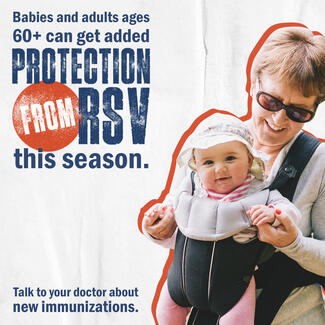
RSV (Respiratory syncytial virus) is a common respiratory virus that generally spreads during fall and winter. Nearly all children will get RSV for the first time before the age of two. It’s possible to get RSV more than once and people can get infected at any age.
Most people with RSV will have only mild, cold-like symptoms, but it can be serious for infants, older adults, and people with weakened immune systems.
